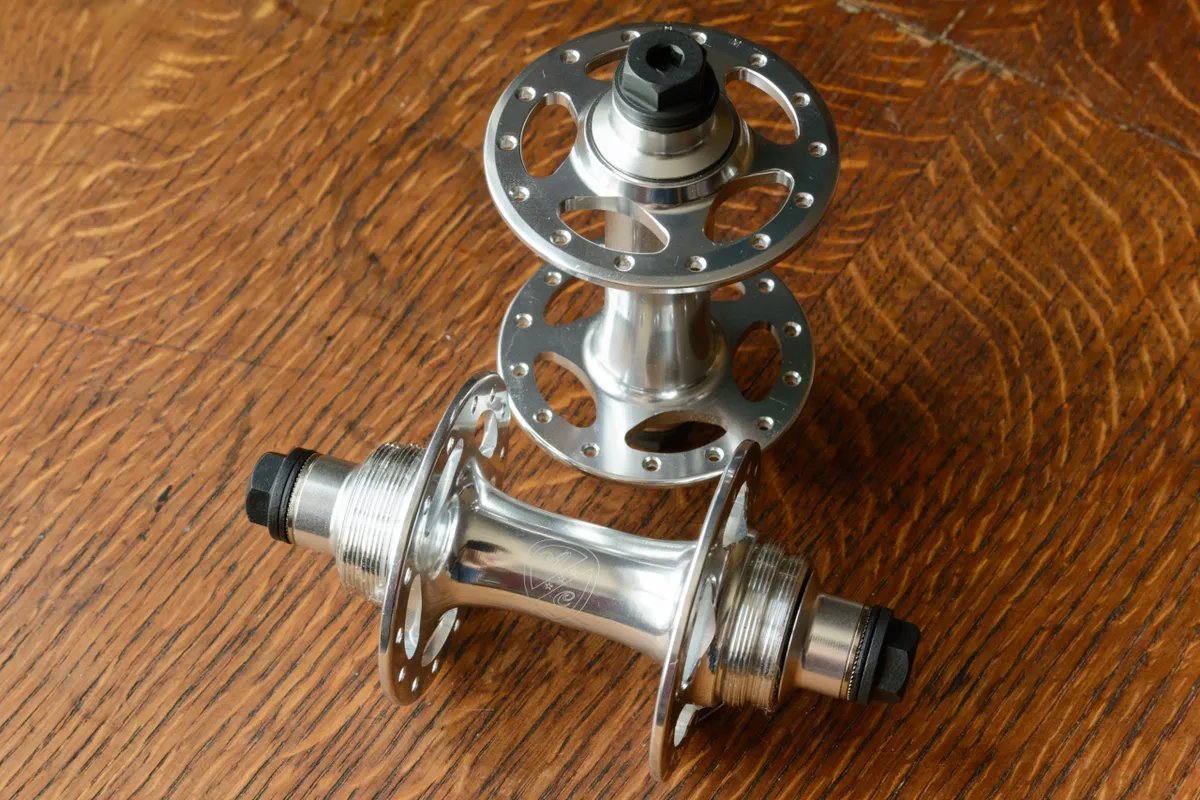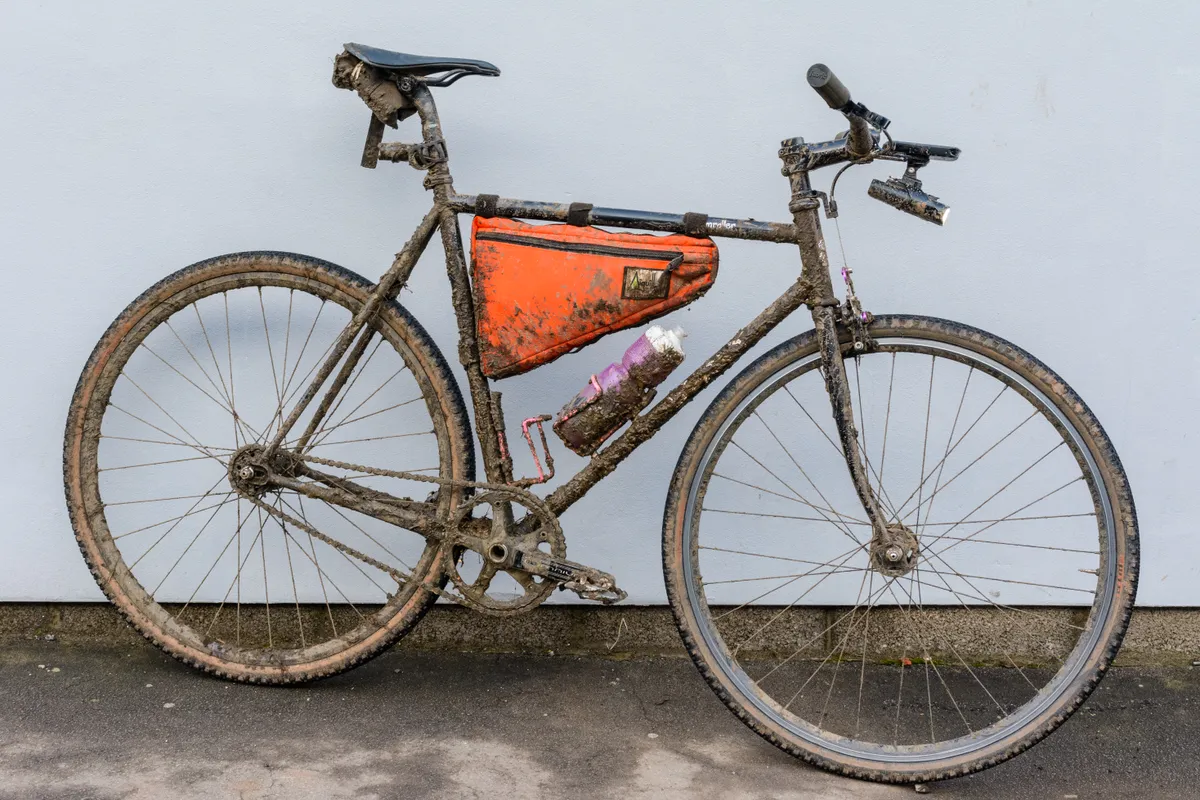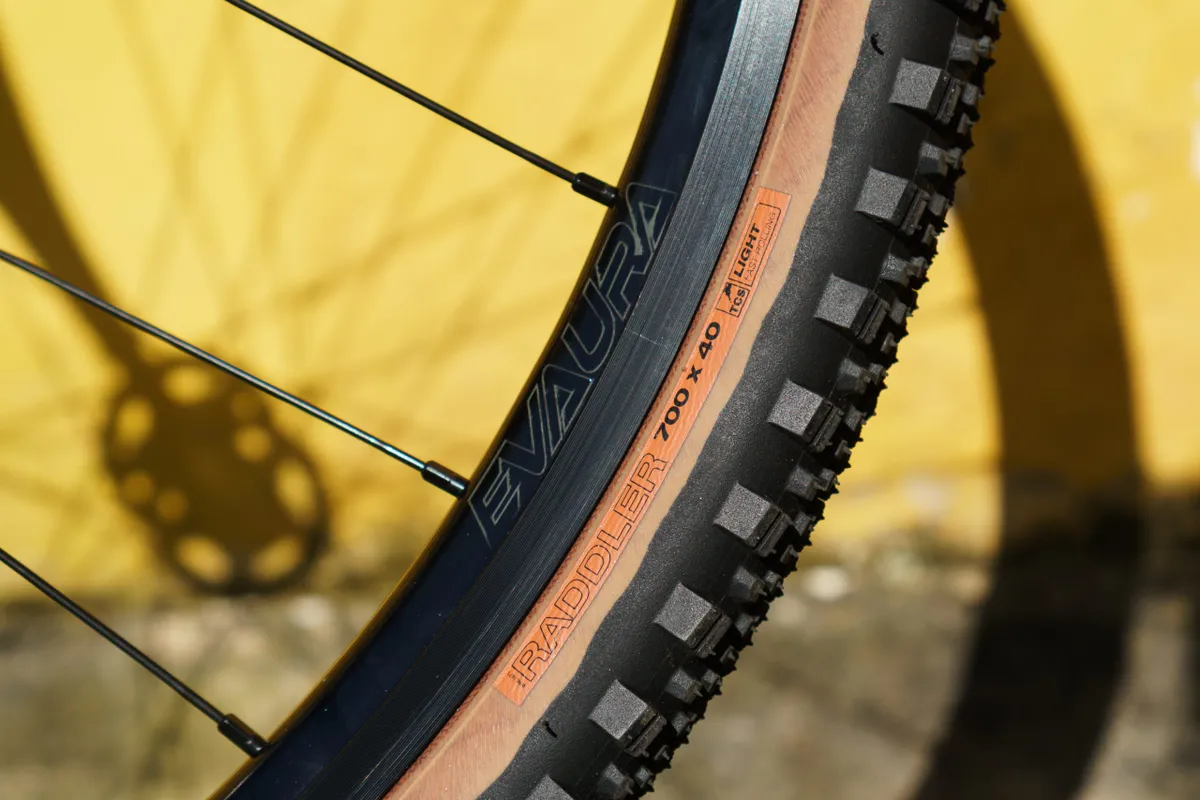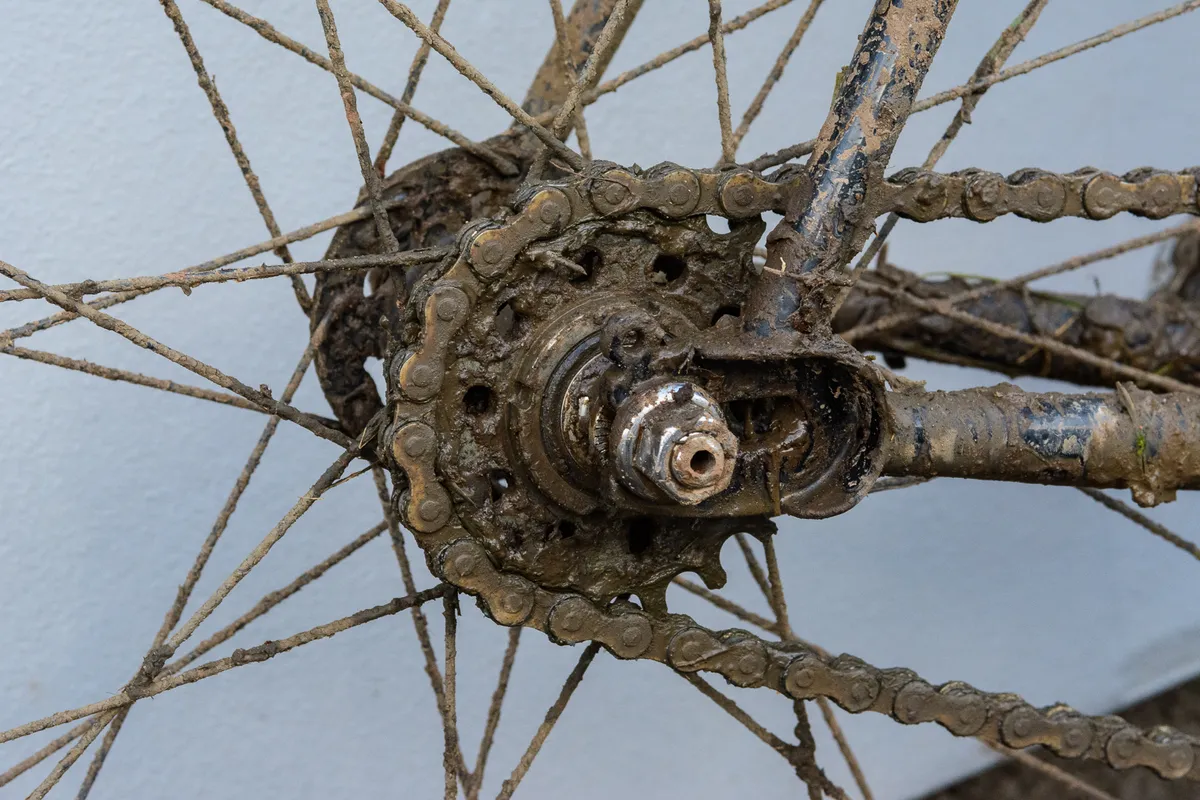I have truly abused Halo’s TK fixed gear hubs for the past 15 months and have been wholly impressed by their excellent build quality and longevity.
Despite enduring thousands of grimy fixed miles, they still run as smoothly as the first day I laid down a great big fat fixie skid on them.
Better still, a pair of these hubs cost considerably less than other boutique fixed gear hubs of comparable quality.
From a decidedly stupid ~278km audax epic to riding – no, swimming – through outer-Bristol's muddiest field boundaries, these really have been put through the wringer.
This is why they have won a spot as one of my coveted High-Mileage Heroes.
BikeRadar's High-Mileage Heroes
High-Mileage Heroes is a new series on BikeRadar showcasing the products that have stood the test of time and become part of our everyday riding.
These aren’t reviews, but rather a chance to talk about the kit we depend on and the products we choose to use when we’re not reviewing fresh gear.
What do I look for in a fixed-gear hub?

There are a huge number of boutique track hubs available on the market – Paul Components, White Industries, Raketa and Royce are all beautiful examples that spring to mind.
However, a pair of hubs from any of these brands will set you back a minimum of $330 (approximately £233) for a pair.
It’s important to remember a track hub is pretty much just a threaded shell with some bearings banged in and an axle fitted.
Unlike a typical hub, there are no complex freehub or rotor mounts to manufacture (there are exceptions).
So what are you actually paying for on a ~$350 fixed-gear bike hubset? It all boils down to:
- High-quality bearings (which are more expensive than you might imagine)
- Precision machining to make the most of those bearings (expensive from a machinery investment, quality control and labour cost point of view)
- Fancy lightweight materials (expensive if you’re not buying it in enormous bulk)
- And a nice finish (once again, expensive from a labour standpoint)
When you consider all of these brands are small-scale operations producing exceptionally high-quality niche products to appeal to fixie-loving weirdos like me, it’s hardly surprising they are pricey.
At the other end of the scale, cheap OEM-spec (original equipment manufacturer) hubs typically use cheap, nasty bearings and, in my experience, are generally poorly made, meaning they eat through bearings frustratingly quickly.
Given one of the key appeals of a fixed gear bike is low maintenance, this quickly becomes tiresome.
Moving up in price a bit, something like Miche’s Primato track hubs (~£70 a pair) are perfectly nice, but these really are designed for track use only – they aren’t nearly as well sealed as something designed for out-of-doors use and you’re likely to trash them pretty quickly.
What makes Halo’s TK hubs so good?

Halo’s TK hubs deliver the quality of a boutique hub into a well-designed and unfussy package for a fraction of the price, starting at £115 for a pair at RRP.
The hubs are available in 24-, 32-, 36- or 48-hole spoke drillings, double fixed or flip-flop threading, and come in silver, black or white finishes. The rear hub weighs a claimed 270g in its lightest configuration (that figure includes the track nuts).
An interesting version of the hub that uses HG-splined cogs rather than a traditional thread-on cog is also available. I’ve not tested one of these but if you make a habit of regularly swapping cogs, need an adjustable chain line or want to experiment with a funky ‘dinglespeed’ setup (a singlespeed setup that has multiple cogs or chainrings, allowing you to manually switch between ratios), it could be a good option.
As the pedalling load is transferred onto the splines, the lockring on this hub also doesn’t have to handle any rotational forces. This is no bad thing if you make a habit of throwing down sweet back-pedal skids and find regular lockrings tend to seize in place for you.

My particular hubs are laced to a set of Halo Evaura rims and have lived on my Surly Steamroller (the bike I must have banged on about the most on BikeRadar) for the past 15 months or so.
I have treated my poor ol’ Surly like trash, eating through numerous bottom brackets, chains and brake blocks since I built it up last year.
I’ve even managed to totally wear out a rear cog, which is an impressive feat when you consider reduced drivetrain wear is one of the things people love most about fixies.
Despite rapid parts consumption elsewhere, the hubs are still spinning like new. I really am not exaggerating here – I genuinely can’t believe quite how nicely they still run.

There is absolutely no grittiness or play, which is seriously impressive given how many direct pressure wash blasts, deep stream crossings and muddy miles these have endured.
I haven’t removed the seals from the bearings to check for water ingress for fear of irreversibly damaging them. However, there are no tell-tale rusty streaks around the bearings.
The threaded end caps (Halo refers to these as end cones) don’t feature an o-ring to aid sealing, but these sit very snugly within the bearing bore, so I’m sure they help stop the worst grit from making its way to the bearings.
The end caps also have a machined serrated face, which helps to stop the hubs slipping in the track ends under power.
The hardy stainless steel track nuts are also really nice. They include a chunky captive washer that doesn't spin as you tighten the nuts, which provides a more even and consistent clamping force. It also stops the finish on your track ends from getting damaged.
Should the time ever come to disassemble the hubs, it looks to be a very simple process, only requiring a handful of standard tools and standard-sized bearings.
While my heart will always be set aflutter by boutique high-end hubs – and I would always encourage you to support small brands if you can afford to do so – my frugal head would have a hard time justifying buying anything other than these.
Other fixed-gear fashionistas I know rate them equally highly and I have no doubt they’re going to provide years of fuss-free service.
If you are considering building your own set of fixed gear wheels, I wouldn’t hesitate to recommend them.
